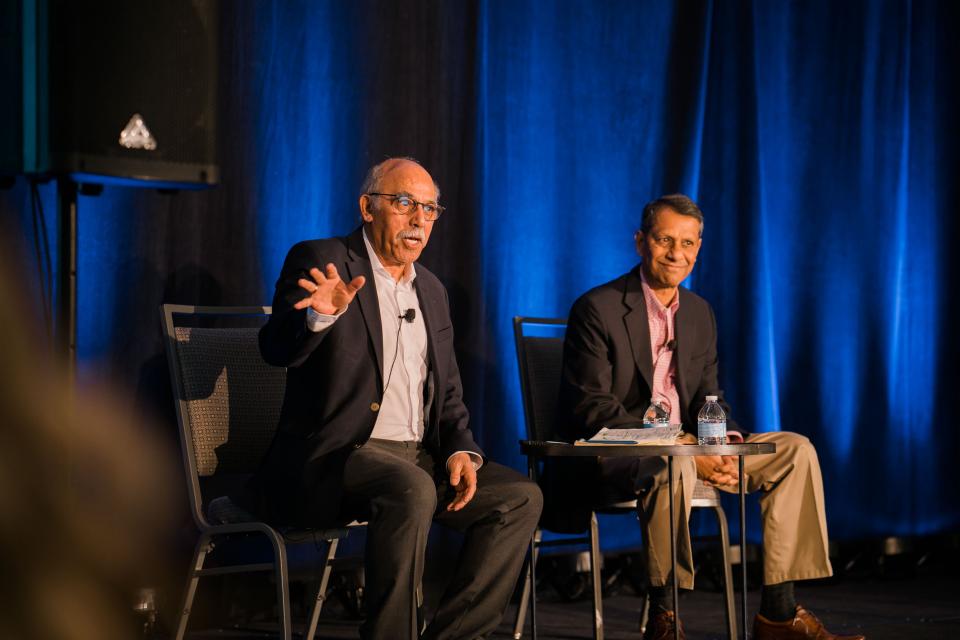The higher education sector is only scratching the surface of how artificial intelligence can support learners. There is a mountain of data about how people learn, so how do we tap into it to scaffold a learning experience suitable for a hybrid learning world, asked Vijay Kumar, executive director of the Abdul Latif Jameel World Education Lab and associate dean for open learning at the Massachusetts Institute of Technology (MIT).
Speaking at a session at Times Higher Education’s Digital Universities Week US 2022, held in partnership with AI specialists Gyan, Kumar explained that MIT has been working with Gyan to “create different kinds of learning opportunities for different kinds of learners”.
“We talk about how we might create pathways for different kinds of human skills based on the content and courses that we have,” he explained. “For example, how might we think about organising open courses in more coherent packages that can become useful in different ways?”
Gyan founder and chair Venkat Srinivasan detailed three ways in which AI can support institutions. “First, there’s a lot of content out there and somehow we have to process it and bring it to the right person at the right level. Secondly, we need to use AI to see if people have really understood. And thirdly, how do we personalise this to an individual?” Srinivasan said. Gyan enables academics to access topics, automatically curate them, and annotate them or link to internal content libraries as they wish.
Srinivasan argued that the most useful skill learners can acquire in the coming years is “thinking computationally”. People who know how to ask the right questions of digital systems will be able to gain insights and bring the benefits of automation to their jobs, he said.
Offering credentials for learning was not always necessary, Srinivasan suggested. “Your learners may or may not care about these. But if they do, you can add a layer of assessment,” he explained. AI can also support learners to develop a personalised career path: they can upload a resume or a list of skills and Gyan can show them the learning units towards their desired career or suggest a role that matches these skills.
In the future, AI will be able to augment learners’ experiences even further, looking at facial expressions to determine attention levels and drawing on learning science to help students make sense of disaggregated content. “It can give insights on how students are learning so we can adapt and fill in the gaps. I can make informed reasonable judgements about how I should plan my interventions with a learner. It can act as an adjunct professor,” Srinivasan concluded.
Find out more about Gyan.


comment